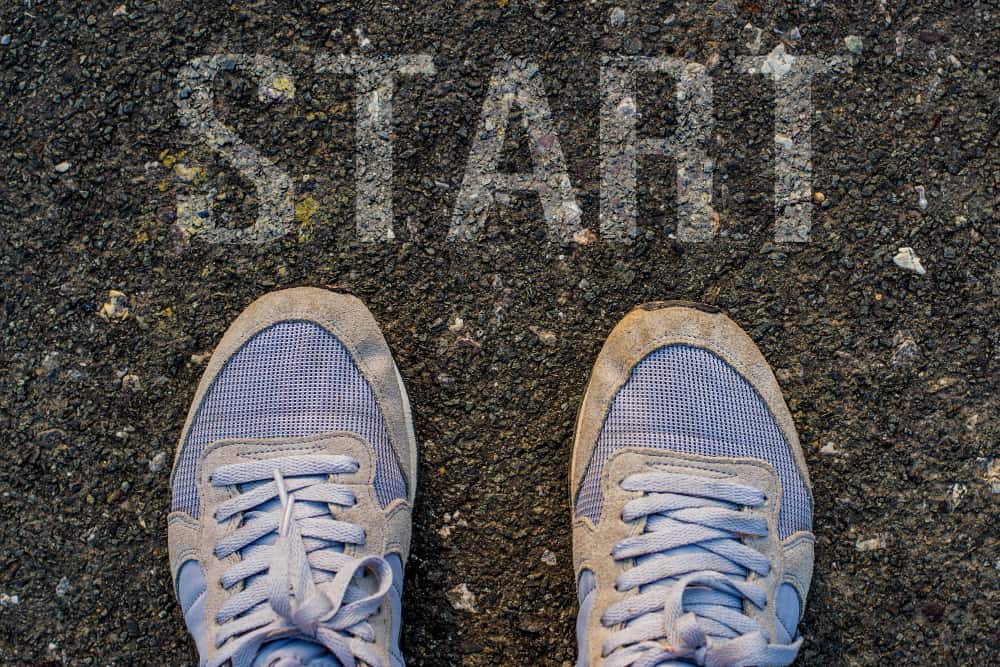7 things to know when booking your first therapy sessions
Are you thinking about booking counselling or therapy sessions for the first time?
We understand that it can be daunting… Which therapist should you choose? What should you expect from your therapy sessions? And will I actually feel better?
I have collated the most common questions people ask when they’re new to therapy (regardless of the triggers that bring people to counselling).
Note: We use the terms “Counselling” and “Therapy” interchangeably in Australia.
1. Can therapy sessions help if I don’t know what the problem is?
Some people come to their counselling sessions ready to articulate their struggles in detail. But they are the minority.
Some can point to a symptom or destructive behaviour:
“I’m stressed, and I can’t sleep.”
“I’m drinking more than usual.”
“I’m always snapping at my partner.”
But they can’t really explain it.
And for others it is even more intangible:
“I don’t know, I just don’t feel myself, things are fine, but I don’t feel fine.”
You do not need to know what the problem is or how to describe it. “Finding” the problem is part of the counselling process, and it is part of a therapist’s job to facilitate this process.
If you cannot name or explain your difficulties, you are not alone. Don’t let not knowing stop you — a good therapist can help you find the words.
2. What if my life is good already?
Does your life from the outside look good? Are you considered lucky?
Many people denigrate their pain, calling it ‘first world problems’. So, they suck it up or tough it out because they find it hard to believe that they need or deserve help.
However, if they had pain in a leg that caused them to limp, they would not hesitate to get medical attention. And if it was a friend struggling, they would encourage them to get help.
It can be a destructive double standard because pain and discomfort caused by stress, depression, anxiety, loss, trauma, or any other mental health issue are real and deserve attention. A good life does not mean you ought to struggle alone with stress and strain.
3. Where do I start with therapy?
Some people know exactly where they want to start in their first therapy session. They have thought about what they want to say. However, most people come to counselling sessions with nerves and vague ideas only. Either way is fine, we start where you are at.
Every first session is unique. You may have a question for your therapist. Your therapist will have questions for you. Perhaps you will outline your current life circumstances. You might describe how you are experiencing stress, how it is impacting daily life. Some family history may help you get started.
Your counsellor will assist you if you are feeling uncertain. They will have gentle prompts ready to help you get started, and to work with you to find an approach that eases you into counselling.
4. How do I choose a new therapist? What if don’t like them?
Be sure to see a therapist who is qualified, professional, and has the skill to meet your needs. Ask about their training and expertise, the clients they see, and the issues they assist with.
Also ask how they work. For example, in our therapy sessions at JS&A, we explain beforehand that we want to understand your personal history. We will ask about your past relationships, childhood, and family history. People who do not want to discuss the past will know that our service is not a good fit for them.
Most professionals in this field are respectful and thoughtful — you should expect this as a minimum. Get a feel for the counsellor from their website or directory profile, or whoever referred you, and from your exchanges with them on the phone or via email. If you have doubts, address them, or find someone else.
· You do not want a therapist who talks about their own personal life.
· You do not want someone who is nice and wants only to comfort you or cheer you up.
· You do want a therapist who can ask you difficult questions where appropriate, and who is thoughtful about your answers.
It is okay and likely that you will feel uncomfortable at times — unless you and your counsellor are avoiding uncomfortable topics, which of course is counterproductive.
Some discomfort is usually necessary to do good work, but it is critical for your therapist to strive to make you feel safe. Your therapist must demonstrate to you that they are capable of responding constructively to whatever discomfort or strong emotion you may experience in your therapy sessions.
It is important that you can raise concerns with your counsellor. They ought to offer a considered, helpful response. A defensive, evasive, or dismissive reaction is a red flag.
Your therapist need not be a person with whom you imagine enjoying a coffee or a beer. They do not need to be friend material! It’s good to find your therapist genuine, however strict professional boundaries are of utmost importance.
5. How do I know if I can do therapy?
It is normal to feel nervous about coming to see a therapist for the first time, or the first few times. It is like trying anything new. Although, let’s face it, nerves may be worse with therapy; talking about your personal challenges with a stranger, even a professional, requires a level of vulnerability and trust.
I don’t know why, but many clients seem to think that they should know how to do therapy. They worry that they won’t know what to do, or that they will get it wrong.
Rest assured that there is no ‘right way’. And a good counsellor is trained and ready to assist you with the process.
· Some people are ready to tell their story, some need their counsellor to prompt them with questions.
· Some people struggle to feel or show emotion, others struggle to contain their emotions.
· Some people find it easy to use therapy to make sense of their difficulties, to find relief or make the change they want, while others need time and support to find their feet in the therapeutic process.
Counselling is a process not a skill. It may be difficult, even painful. But if you have come this far in your investigation into getting help, you deserve it, and you can do it!
6. How many therapy sessions do I need?
You could say, “how long is a piece of string?” But when you are thinking about counselling and therapy, how many sessions is a fair question, so here are some pointers.
For therapy in our Sydney office, we suggest that people come along for four to six sessions to begin. During this time, we gain some understanding of one another and the challenges you face. Expect positive outcomes from these sessions: a measure of relief, insight and/or direction.
Some people decide these sessions are enough for now. Others want more significant change in their lives and the way they feel and function.
You might commit to weekly counselling for several weeks up to a few months while you address anxiety arising from a promotion or a specific relationship issue. Maybe you find that a year of help sees you through a life crisis or a period of grieving.
Or you may decide to embark on longer-term therapy to address life-long challenges, troubling relationships, or behavioural patterns. Trauma or loss in childhood (or growing up with caregivers suffering from these) affects your development and personality and leaves you at greater risk of mental health challenges in adulthood.
Like healing and rehabilitation after serious injury, learning a new language, or mastering a new skill, therapy will take time — depending on what you wish to achieve.
7. Will therapy work for me?
Some people begin to feel better as soon as they’ve booked a therapy appointment! In the face of struggle, you tend to feel relief from taking positive action.
Swift relief also comes when you vent and let off steam or talk about your difficulty and have a cry. Likewise, you feel better when a professional understands you or helps you make sense of your experience.
But just as there is pain, sweat and soreness on the path to fitness, there are side effects to therapy. Facing old hurts, confronting the realities of an unhealthy relationship or work situation, exploring stress, anxiety and depression, are often accompanied by painful thoughts, feelings and some fatigue.
Yet after a challenging fitness workout, most people are glad they did it, even if they feel tired and sore afterwards — so too with therapy sessions.
Counselling and therapy sessions work in different ways for different people. And you will respond differently to various types of help and practitioners, hence the importance of seeking out what is best for you.
A good experience of counselling can bring comfort, perspective, and positive change. For some people the outcome is concrete: you can finally make a decision that you’ve been putting off, or you sleep better.
For others, it is less tangible but significant. You gain understanding and self-awareness and become less reactive and more intentional in your behaviours and choices. You overcome fears and shift dark moods; or you work through anger, sadness and confusion; and in time, gain an increase in calm and contentment.
Feel the doubt and go for it anyway
The truth is, of course, it is reasonable to have doubts — as with trying anything new: a job, a relationship, a place to live. You research as best you can, you make informed choices, and you take a punt. It’s worth giving it a go, to seek the help you deserve.
I hope this answers your questions about counselling and therapy. I hope it equips you with greater confidence to take the next step.
Now you can take steps towards getting some help, relief, and direction.
If you are reading this from Sydney, we are based in the CBD and would love to work with you, please contact us for therapy in Sydney when you are ready.
If you are reading this from anywhere else in the world we wish you a fruitful therapy journey and hope you get the support, healing and peace that you deserve.



